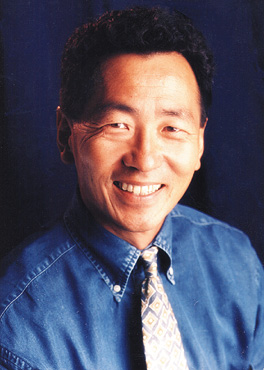|
ASIAN AMERICAN BUSINESS |
CONTACT US
|
ADVERTISING INFO
© 1996-2013 Asian Media Group Inc
No part of the contents of this site may be reproduced without prior written permission.
MICROSOFT'S ASIAN PIONEER
PAGE 4 of 10
GS: Did you go to Microsoft right after that?
Oki: No, I did some consulting. Not for very long, but I did some consulting with MicroPro which was absolutely the star back in the early days with the word processor called WordStar. I was doing some very high-level strategic consulting for Seymour Rubinstein, its president and founder.

GS: You mean marketing consulting?
Oki: It was everything from product strategy to business planning to just overall strategic direction. It was almost a carte blanche in terms of doing some typical Boston Consulting Group kind of application.
GS: What part of 1982 did you start at Microsoft?
Oki: I started in March.
GS: How did you get in touch with Bill Gates?
Oki: Just a letter.
GS: You sent him a letter?
Oki: Yep. Bill saw it and passed it onto Steve Ballmer who at that time was vice-president of corporate staffing. I think that was his title. As it turns out [Steve and I] had a mutual friend--talk about serendipity--who had been talking to Steve about this Sequoia group and Steve noted that on my resume and said, God, I wonder if this is the same company. He called this mutual friend and sure enough it was the same company, and do you know this Scott Oki guy? It so happened that I got a good referral, and so they invited me for some interviews.
GS: How was your first interview with Bill Gates?
Oki: It was good. It was a non-traditional kind of interview. I had been the product manager for the BASIC language that was running on the Hewlett Packard machine while at H-P and since Bill obviously knew quite a bit about BASIC, it was more Bill telling me about this BASIC that was on the H-P machine than it was an interview. We seemed to hit it off and I ended up interviewing with what seemed like 20 different people, two different trips. Having run the gauntlet, they finally offered me a position.
GS: He's seven years younger than you. What was your first impression of him?
[CONTINUED BELOW]
Oki: Same impression most people would have--high energy, very smart, very focused individual.
GS: You weren't thinking, This kid is so young looking, should I be going to work for him?
Oki: No, not at all. One of the things you learn from experience is that IQ and having the intellectual bandwidth to do things is equally, if not more, important than having a lot of grey hairs.
GS: When did he make an offer?
Oki: Fairly quickly, a couple of days after we had concluded the interviews.
GS: Why did he put you in charge of the international operations?
Oki: He didn't. When I first got hired, it was a weird title, marketing manager, special accounts. Those accounts were IBM and Microsoft's largest distributor and ASCII in Japan. PAGE 5
| "One of the things you learn from experience is that IQ and having the intellectual bandwidth to do things is equally, if not more, important than having a lot of grey hairs." |
